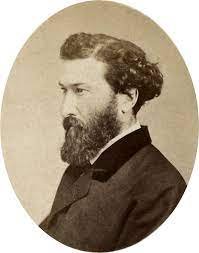The novel thrusts readers immediately into the gritty underbelly of 1860s Paris in its opening pages. A condemned man’s final whispered words on the eve of his execution – “At last I am about to be released from the pangs of torture which for twenty-three years have rent my heart” – set into motion a baffling investigation to unravel the cryptic meaning behind his utterance. As luck would have it, a notorious con man’s startling deathbed confession implicates a respected bourgeois family’s potential culpability in some long-buried atrocity.
From these tantalizing narrative seeds, Gaboriau spins an intricately layered web that deftly intertwines two distinct yet inextricably linked crimes separated across the decades. The action propels forward via the meticulous examinations of a trio of detectives – the methodical M. Tabaret, zealous rookie M. Palot, and the illustrious veteran investigator M. Lecoq. This brilliant conceit allows the novel to explore differing investigative styles while chronicling the trio’s gathering of evidence in engrossing detail.
It’s the incomparable Lecoq who emerges as Gaboriau’s iconic hero – an analytical mastermind whose relentless deductions elevate crime-solving to a heightened science and exhibition of logic. Modeled explicitly after real-life pioneering Sûreté detective Eugène François Vidocq, Lecoq’s persona established the original archetype of the brilliantly unconventional yet morally upright investigator willing to doggedly pursue justice across all obstacles. As he scrutinizes alibis, explicates minute physical evidence, and profiles suspects’ psychologies to unravel the linked cold cases, Lecoq transcends the puzzle aspects into a thoroughgoing portrayal of criminal psychology and social realism.
Surrounding Lecoq, Gaboriau assembled a richly realized ensemble spanning the Parisian class divides – from aristocratic magnates ensconced in their lavish residences on the Boulevard St. Germain, to the intriguing shop girls and petty criminals haunting the city’s gritty lower depths. The author paints evocative portraits of an unexpectedly vast array of interconnected suspects – including a menacing German baron, a duplicitous countess, and an incendiary escaped convict. Yet he also tenderly depicts the wholesome romance between an earnest dressmaker and dedicated police officer, whose personal stakes become inextricably entangled with the high-profile cases.
As M. Lecoq and his compatriots’ investigations accelerate, Gaboriau injects escalating layers of dramatic tension and reversals that continually upend readers’ assumptions. The advent of multiple murders and narrowly averted assassination attempts heighten the thriller aspects as the narrative’s tendrils sprawl outward to encompass both the highest aristocratic salons and shadiest underworld gambling dens. Yet Gaboriau shrewdly withholds definitive resolutions to the central mysteries while littering the trail with ingenious false leads and coded messages cleverly integrated into the plot mechanics. The stakes and urgency continually intensify while retaining ambiguity over the ultimate culprits.
Throughout these intricate machinations, Gaboriau wields his gift for meticulously chronicling the analytical police procedures for scouring crime scenes and following forensic trails to new revelations. From scrutinizing servants’ laundry habits to deciphering messages embedded in charcoal inscriptions, no minor narrative element or detail emerges as extraneous within the author’s potent brand of realistic suspense. He seamlessly integrates examinations of witnesses’ contradictions and explorations of characters’ backstories into the escalating momentum of the central criminal investigations.
Upon its publication, File No. 113’s depiction of rigorous detective work anchored by complex characters established new horizons for the novel of criminal investigation. Critics extolled its pioneering exploration of how “the most trifling circumstances assume enormous importance when viewed by a master hand” and “wonderful faculty for bringing conviction home to the minds of the readers.” Gaboriau created the original template for how gripping mysteries could manifest from brilliant deductions assembled from the most mundane minutiae of daily existence. His gritty Parisian environs and palpable quotidian details anchored the outrageous plot twists in palpable authenticity.
In the ensuing decades, File No. 113 ascended to a preeminent status as a foundational monument of the detective fiction genre’s evolution from mere puzzle tales into immersive psychological dramas. Its singularly focused chronicle of the cat-and-mouse investigation between the calculating Lecoq and cunning opposition elevated the profession of criminology into a virtuosic art – one demanding reservoirs of technical knowledge and observational acuity. Gaboriau essentially created the crime novel as a sustained portrait of protracted intellectual conflict, where each nuance of evidence and motive analysis propelled suspense while blurring boundaries between criminal and civilian spheres.
For the modern reader, this ebook edition ensures Gaboriau’s timeless classic can be experienced as the author intended – an irresistibly serpentine mystery saga leavened by his commitment to depicting thematic substance over mere artificial narrative mechanics. The dueling investigations and shockingly violent twists explored profoundly human themes like the illusory nature of social status, fatalistic prophecies and the foreboding heritage of generational sin. By freely providing this seminal ur-text of the detective novel canon, new audiences can appreciate the intricacies of plotting and inventiveness Gaboriau pioneered to electrifying effect.
To immerse oneself in File No. 113 is to experience a transformative literary achievement – an early pinnacle where sensational crime storytelling synthesized with forensic realism and resonant character drama. Gaboriau elevated a disreputable mass medium into sophistication and pathos, forging an inextricable synergy between rigorous methodology and lurid suspense that would redefine an entire narrative tradition. This canonical novel remains as exhilarating a page-turner today as when it provided a foundational framework for the art of mystery writing itself.





